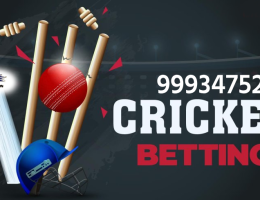
India’s New Online Gaming Act 2025
India’s New Online Gaming Act 2025
- By --
- Friday, 07 Nov, 2025
The Promotion and Regulation of Online Gaming Act, 2025 (sometimes called the “Online Gaming Act 2025”) was passed by the Indian Parliament in August 2025. Key points:
- It gives the Union government the power to regulate online gaming (on digital devices) nationwide — defining games, classifying them, creating a regulatory authority, requiring licensing.
- Crucially, it prohibits online games involving a wager or stake of money (i.e., real-money games) whether they are described as “skill-based” or “chance-based”.
- At the same time, it promotes and protects other forms of online gaming — e-sports, social games, educational games — as legitimate.
- The Act imposes tough penalties: for operators, advertisers, payment facilitators: significant fines (in the range of ₹50 lakh to ₹1 crore or more) and up to 3–5 years imprisonment for repeat offences.
- The Act also bans financial transactions or banking/financial institution participation in real-money games.
- A set of draft rules (the “Rules, 2025”) under the Act are already out for stakeholder comment (October 2025).
Why it was introduced
According to government sources and media commentary:
- Large concern about addiction, financial ruin, especially youth involvement, and associated social harms from online gaming platforms with money stakes.
- Links alleged with fraud, money-laundering, even terror-financing via real-money gaming.
- The industry had grown rapidly (fantasy sports, rummy, poker, etc) under inconsistent state laws — hence a national regulatory measure was deemed necessary.
What it means in practice
- If you participate in an online game where you stake money/coins/tokens with the expectation of winning money back (or similar value), that will now fall under “online money game” and is prohibited.
- Advertising such games (celebrity endorsements, influencer posts) is also a punishable offence.
- Platforms must get licences, classify their games, verify age/KYC for users, impose responsible gaming safeguards (self-exclusion, deposit/time limits) for permitted games.
- Games purely for entertainment, without monetary returns (social games, casual games, e-sports competitions where prize may be allowed under strict conditions) are allowed and indeed encouraged.
- Many existing platforms that previously monetised fantasy sports, rummy/poker with cash reward models will need to revise their business models or stop operations for real-money formats.
Implications for the gaming industry
- A major disruption for the “real-money gaming” sector (fantasy sports, real-money poker, rummy platforms) since their models are now largely banned or will need rigid restructuring.
- Potential job losses, investment drop-off, app closures have already been reported/analyzed.
- On the flip side, a clear regulatory framework may create opportunities for legitimate social/skill-based gaming, e-sports infrastructure, and export of gaming services.
- The need for the regulatory authority and clear game-classification definitions will be key in implementation.
Which Cities / States Allow Online Games in India?
In India the legal status of online gambling/online gaming (especially with money stakes) is not uniform. Since “gambling” is a state subject and “online/digital” adds central law dimension, each state has its own stance. Here’s a summary.
States/Places that have explicit legal frameworks allowing some regulated online skill-games or online gaming
- Sikkim: Has an “Online Gaming (Regulation) Act” and licences for online gambling/online skill-games (though historically only intranet terminals).
- Nagaland: Regulates “games of skill” online under the Nagaland Prohibition of Gambling & Promotion and Regulation of Online Games of Skill Act, 2016.
- Meghalaya: Under the Meghalaya Regulation of Gaming Act, 2021, it allows licensing of games of chance and skill (including online) under certain conditions.
- Cities in states where online real-money gaming is not explicitly banned sometimes operate in “grey-zone” but the new national Act may override or harmonise.
- Some states such as Delhi or Maharashtra have no specific laws addressing online gaming/gambling, thus online games (especially offshore) are accessible albeit not clearly regulated.
States/Places with stricter bans or prohibitions
- Telangana: Enforced a ban on online betting/gambling including skill-based games in amendments to their Gaming Act.
- Andhra Pradesh: Strong prohibition on online gambling (amended Gaming Act 2020) including online casinos/poker.
- Tamil Nadu: Has regulatory/ban frameworks; e.g., the high court upheld restrictions on online real-money games (e.g., rummy/poker) requiring Aadhaar-KYC, time/amount limits.
Note on “Which city”
Since laws are at state (not city) level, there is no specific single city that is singled out as allowing online gambling across the board. For example:
- If you live in Delhi (in the state of NCT Delhi) you are in a state with no explicit ban on online gambling/gaming with money stakes — but that does not guarantee full legality: the national Act now prohibits real-money online gaming across India.
- If you are in Chennai (Tamil Nadu), you are under a state with strong regulations and restrictions on real-money games.
- If you are in a state like Sikkim or Nagaland, regulated forms of online skill-games may be legally permitted under licence.
What that means for a City like Delhi
Since you mentioned your location as Delhi:
- Delhi has no specific state law explicitly legalising or banning online gambling with stakes; the older Public Gambling Act (land-based) is in force.
- However, with the national Online Gaming Act 2025, any online game involving a money stake (wager) will now be prohibited across India (regardless of city) unless a specific exemption/licensing is given.
- So in practice, even in Delhi, you should not assume you can legally play online games where you stake money and win real money. The law is clear that “money-based online games” are prohibited.
Conclusion
The new Online Gaming Act 2025 is a major shift: it draws a clear national line against real-money online gaming/gambling, while supporting social, skill and e-sports games. For users and operators in India it means: games where you stake money and hope to win more are largely banned; casual/social/skill games are fine; states still retain regulatory powers, so local laws may add further restrictions.
When it comes to which city allows online games: there is no city that is explicitly set up as a “legal hub” for online gambling with stakes. Some states allow regulated skill-games, many states ban or restrict it, and the national law now prohibits broad real-money formats across all states.
If you like, I can check state-by-state detailed map (including city-level detail) of which states/cities permit what kinds of online games post-2025 Act. Would you like that?








